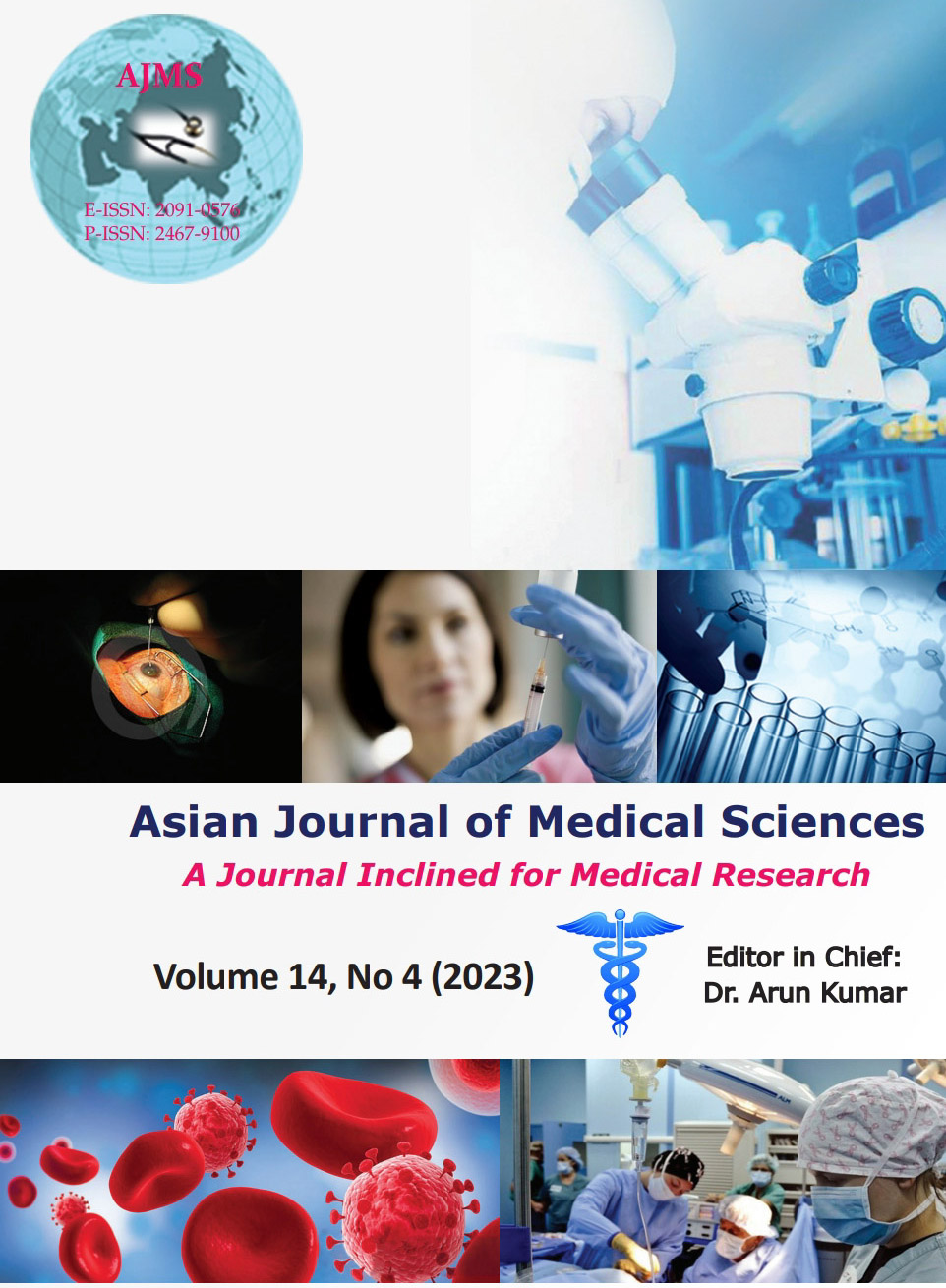Correlation of serum albumin levels with the grading of esophageal varices
Keywords:
Albumin; Cirrhosis; Varices; EndoscopyAbstract
Background: Variceal bleed is one of the major complications seen in patients with cirrhosis of liver of various etiologies and endoscopy is a gold standard for its diagnosis which is an invasive procedure. There are other modalities of non-invasive methods to determine the degree of varices and estimation of serum albumin levels in one among them.
Aims and Objectives: The aims of this study were as follows: (1) To measure serum albumin levels in patients with cirrhosis of liver and (2) to correlate serum albumin levels with grading of esophageal varices.
Materials and Methods: A cross-sectional study was conducted on a total of 100 patients in Bangalore during the study period from October 2016 to September 2017. Case record form with follow-up chart was used to record the duration of disease, history of treatment and complications. Patients underwent biochemical investigations and endoscopy. The presence of varices and their size was obtained from endoscopy reports.
Results: Study includes 100 patients that majority belonged to the age group 40–49 years (46%). Serum albumin levels of <2.8 mg/dL was seen in high number of study subjects (76%). Forty patients had albumin levels of <2.8 mg/dL with grade 3 OGD scopy, followed by 23 patients with Grade 1 esophagogastroduodenoscopy (OGD scopy). The association between albumin and OGD scopy grades was found to be significant (P=0.027).
Conclusion: We conclude that low albumin levels predict higher grades of esophageal varices. It can identify the subset of patients who require prophylactic endoscopic management. Estimating serum albumin levels are non-invasive that can screen the patient for esophageal varices. Thus, this reduces the economic burden on the patients and the cost of management of esophageal varices.
Downloads
Downloads
Published
How to Cite
Issue
Section
License
Copyright (c) 2023 Asian Journal of Medical Sciences

This work is licensed under a Creative Commons Attribution-NonCommercial 4.0 International License.
Authors who publish with this journal agree to the following terms:
- The journal holds copyright and publishes the work under a Creative Commons CC-BY-NC license that permits use, distribution and reprduction in any medium, provided the original work is properly cited and is not used for commercial purposes. The journal should be recognised as the original publisher of this work.
- Authors are able to enter into separate, additional contractual arrangements for the non-exclusive distribution of the journal's published version of the work (e.g., post it to an institutional repository or publish it in a book), with an acknowledgement of its initial publication in this journal.
- Authors are permitted and encouraged to post their work online (e.g., in institutional repositories or on their website) prior to and during the submission process, as it can lead to productive exchanges, as well as earlier and greater citation of published work (See The Effect of Open Access).




